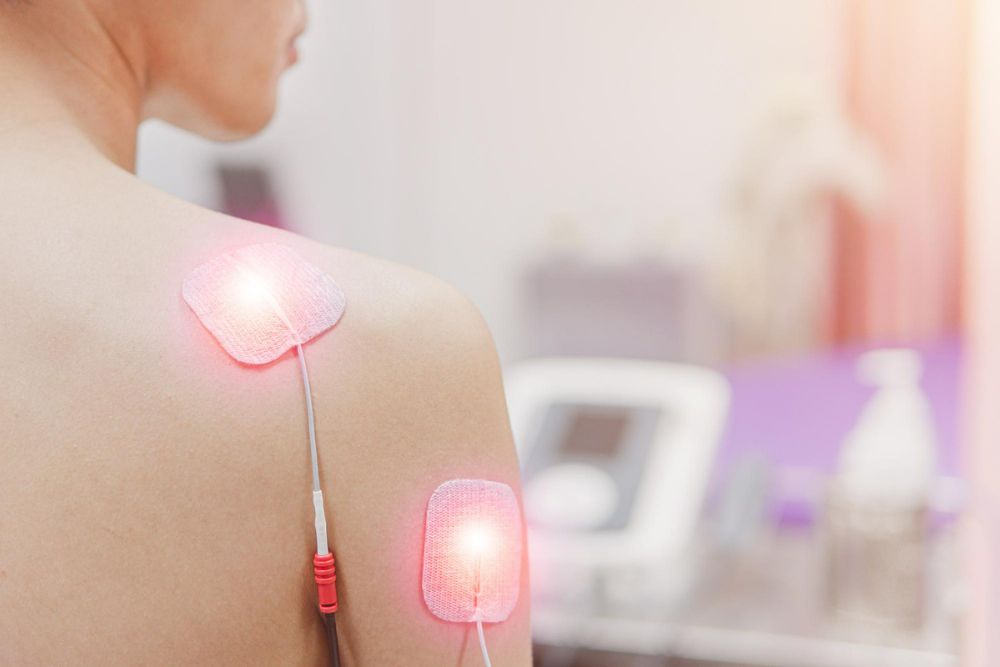If you’ve ever been to a chiropractor or a physical therapist, you may have received treatment using a machine that passed a small, tingling electrical pulse to your nerves. This is known as Transcutaneous Electrical Nerve Stimulation or TENS. A TENS treatment is used to help relieve pain due to certain health conditions and injuries. TENS units used to only be available through a medical provider but are now available to the general public for purchase. Would you benefit from owning a TENS unit?
What is a TENS Unit?
A TENS machine is a small, battery-operated device that has leads connected to sticky pads called electrodes. The pads attach directly to your skin. When the machine is switched on, small electrical impulses are delivered to the affected area of your body by way of your nervous system.
How does a TENS Unit Work?
The electrical impulses sent from the TENS unit to the nervous system alters the intensity of the pain signals going to the spinal cord and brain which helps to relax muscles and reduce pain. In a nutshell, the nervous stimulation interrupts the body’s pain signals. The impulses also may stimulate the production of endorphins (the body’s natural painkillers) thereby reducing sensations of pain and tension. This is only temporary relief, however, and not a permanent reduction of symptoms.
What Health Conditions Benefit from TENS Treatment?
TENS may be able to help with a wide range of conditions including:
- arthritis
- menstrual cramps
- low back pain
- fibromyalgia
- tendinitis, bursitis
- diabetes-related neuropathy
- pelvic pain caused by endometriosis
- osteoarthritis
- pain due to injury
TENS is not a cure for the underlying causes of pain. It generally provides short-term relief while the machine is in use.
Exactly how much relief is experienced depends upon the nature and severity of each person’s condition. It is very important that the TENS device settings are adjusted specifically for each person’s specific needs. For most people, TENS treatment is safe and well tolerated with a much lower risk profile than many other types of pain treatments.
TENS machines are small and lightweight so they can be used in many different settings (at your desk, while moving around the house), but are best used when you are in a relaxed state. TENS units should not be used while you’re driving, operating machinery, or in the bath or shower. TENS is not a suitable pain management approach for people who have a pacemaker or other types of electrical implants. It should not be used over or near the eyes or genitals. A TENS unit is not recommended for people who have epilepsy, heart conditions, or for those who may be pregnant.
If you are interested in TENS treatment, speak to your healthcare provider before purchasing a unit so that you know what to look for in a quality product. TENS units may be covered by your insurance carrier or HSA plan so be sure to choose well.
Resources
nhs.uk. “TENS (Transcutaneous Electrical Nerve Stimulation),” October 24, 2017. https://www.nhs.uk/conditions/transcutaneous-electrical-nerve-stimulation-tens/
Cleveland Clinic. “Transcutaneous Electrical Nerve Stimulation (TENS).” https://my.clevelandclinic.org/health/treatments/15840-transcutaneous-electrical-nerve-stimulation-tens

